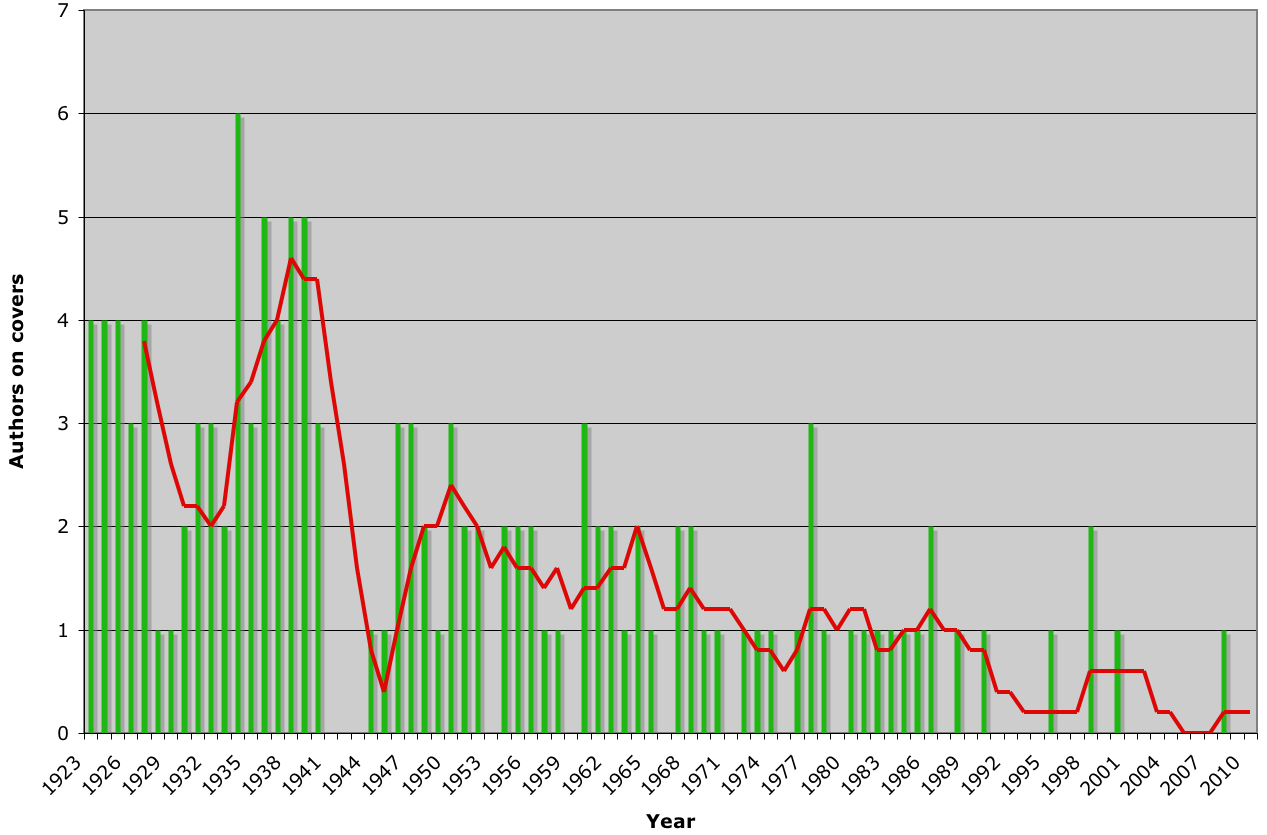 Yesterday the New York Times reported that Jonathan Franzen was to become the first living writer to grace the cover of Time magazine since 2000, when Stephen King made it on. (Twain was on in 2008, but he was dead.)
Yesterday the New York Times reported that Jonathan Franzen was to become the first living writer to grace the cover of Time magazine since 2000, when Stephen King made it on. (Twain was on in 2008, but he was dead.)
So I wondered how often Time had featured authors in past. I came across Time’s handy index of covers, and made this graph, showing the 129 writers—dead and alive—Time has featured since 1923.
Here’s the chart, with a five-year moving average. As you might predict, it’s been a long, continuous fall.






